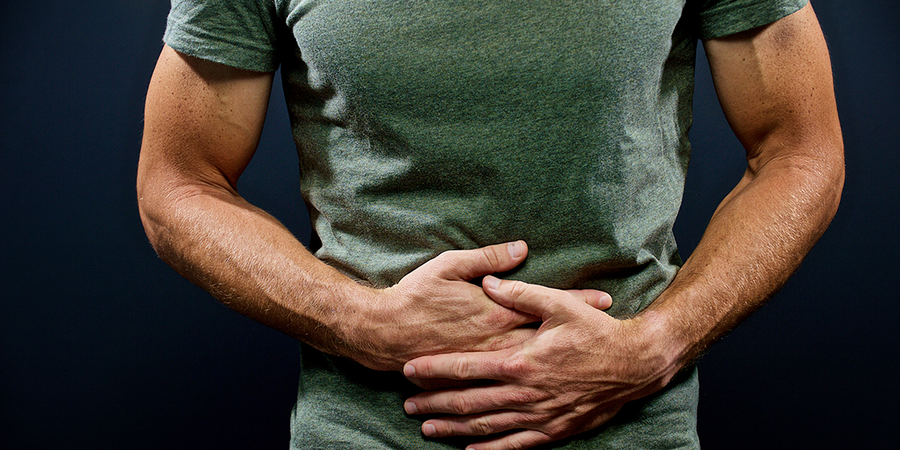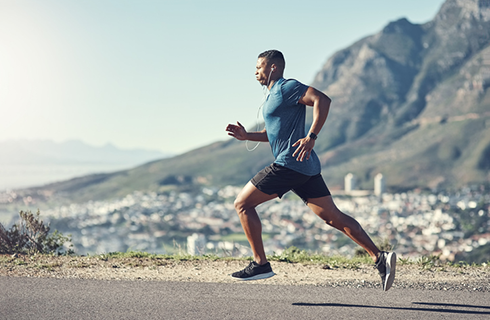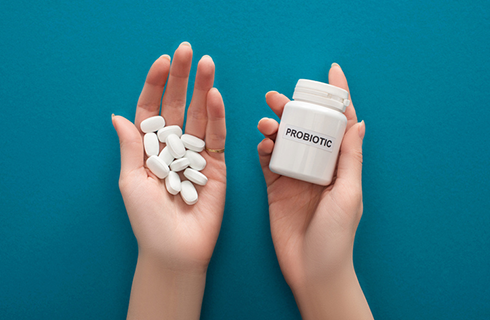
Need an Athletic Performance Boost? Pay Attention to Your Microbiome
By Meagan Francis
So you've been giving considerable thought to your max heart rate, your muscular endurance, and your macros. But have you given any thought to your microbiome — and specifically, how it can help — or hinder — your athletic performance?
Simply put, your microbiome is the combination of bacteria, fungi, protozoa, and viruses that live on and inside your body. And the microbiome — specifically, the mix of flora occurring inside your colon, intestines, and stomach — may be responsible for a lot more than your digestion. Studies have shown a potentially promising link between your body's gut health and how well you can expect to perform as an athlete. However, more research is needed.
“When your gut is healthy, you have more energy, your hormones function more smoothly, and your body is able to assimilate the nutrients you eat," says Laura London, board-certified health counselor (AADP) and fitness specialist. “That, in turn, can give you more energy, stamina, endurance, and focus."
.
How Does the Microbiome Affect Fitness?

Here are some ways that tending to your gut can help your time under the bar, on the track, or in the gym.
1. Metabolic function
Gut microbes assist in the absorption of essential nutrients that your body requires to function properly. When you exercise, the increased metabolic activity places more demand on your body - meaning it requires more energy (from nutrients) to meet that demand. A healthy gut containing the right balance of microorganisms might help your body metabolize and absorb nutrients more efficiently and lead to better performance.
2. Solid sleep
Most athletes know that a good night's sleep can greatly affect performance. And smart athletes know that gut health is the first line of defense against those great energy-robbers, insomnia, and poor sleep quality.
While these two factors are important enough to make a huge difference for most athletes, researchers are hard at work, finding links to other systems and functions. Bottom line: If performance is important to you, you can't afford to overlook your gut health.
.
How Do You Improve Gut Health?

So how does one achieve a healthy gut? It may help to start with what you don't want — namely, an imbalance of gut flora, like overgrowth of fungus or "bad" bacteria. Those imbalances have been linked to poor digestion and absorption of nutrients, lowered immune function, a lessened ability to recover post-workout, lower energy overall, and even joint and bone pain.
Diets high in sugar and processed foods and low in minerals and healthy fats have been linked to out-of-whack guts. Over-prescription of antibiotics doesn't help, either — they tend to wipe out the “good" bacteria right along with the bad, leaving your intestines and colon susceptible to being overtaken by an imbalance of the wrong “bugs."
1. Exercise
Yes, a healthier gut leads to better athletic performance, but the inverse is also true. Studies suggest that people who exercise may exhibit healthier microbiomes, even those without previous athletic routines. Here's the catch: the exercise must be regular and ongoing. Once participants stopped exercising, their gut health returned to its previous (less-healthy) state.
2. Consider supplements
Probiotics, prebiotics, and digestive enzymes help to improve your gut health by promoting the growth of beneficial bacteria in your gut (prebiotics), actually putting them there (probiotics), or helping your body break down food to allow greater absorption of nutrients (digestive enzymes.)
3. Rev up your diet
Reducing processed, high-sugar foods while increasing fiber intake and adding in fermented foods (like kimchi, sauerkraut, and yogurt) has been shown to improve the microbiome and create an environment where healthy microorganisms can thrive.
If controlling your digestion or performance proves difficult with modest nutritional changes, you may want to consider a more restrictive regimen like the gut and psychology syndrome (GAPS) diet. The GAPS diet is based on the understanding that your gut may influence your physical and mental health. Consult and work with a qualified professional (GI doctor, dietitian) that specializes in the GAPS diet.
No matter your fitness level, one thing is sure: It always feels better to end a workout feeling calm and energized than cramped and exhausted. Next time you're thinking about how to break through a plateau or just get back out there again, give your gut's health some consideration. Your colon and intestines will thank — and reward — you.



